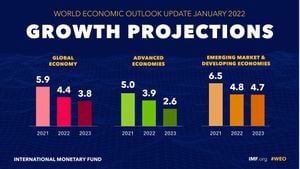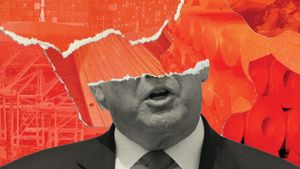The University College Hospital (UCH) located in Ibadan has recently found itself at the center of controversy due to its disconnection from the power supply, primarily attributed to significant debts owed to the Ibadan Electricity Distribution Company (IBEDC). This disconnection has thrown the hospital, which has been operating without power for two weeks, directly impacting both patient care and staff operations. The gravity of the situation was underscored by Busolami Toluwase, the spokesperson for IBEDC, who stated, “We sympathise with UCH’s situation. The disconnection was unavoidable because of the significant outstanding debt.” The struggle of UCH is emblematic of the broader financial difficulties many public institutions face, as they juggle increasing operational costs amid tightening budgets.
UCH, known for its pivotal role as one of Nigeria's premier healthcare facilities, now contends with serious operational hindrances because of the blackout. The hospital staff and its patients have voiced their frustrations over the power outage, which has interrupted not just routine medical services but also emergency procedures, forcing medical professionals to adapt under less-than-ideal circumstances. It raises the alarming question of how long health facilities can operate efficiently under such dire conditions before it begins to affect patient outcomes.
Financial mismanagement and mounting debts are not new issues for the hospital. Previously, UCH was reported to have fallen behind on payments, accumulating debt of approximately N495 million, even after receiving over N600 million designated for power supply from the federal government over four years. This failure to manage finances effectively has led to repeated power cuts, which have previously extended over months, forcing healthcare providers to conduct surgeries using flashlight assistance. Such scenarios paint a vivid picture of the challenges facing institutions reliant on consistent electricity for operational success.
According to reports, UCH incurs nearly N80 million monthly on electricity bills alone, which is considerable for any institution, especially those publicly funded. Toluwase also mentioned the pressing need for IBEDC to manage its financial health, noting, “The debts we carry directly impact our ability to provide electricity to all our customers.” This acknowledgment highlights the struggles of not just UCH but of service providers trying to deliver reliable services within the constraints of their financial capabilities.
IBEDC, feeling the pressure of its own financial obligations, expressed willingness to negotiate with UCH on establishing a flexible payment plan. Toluwase voiced the company's openness to discussions aimed at restoring power to the hospital. “IBEDC remains committed to finding a solution. We are open to discussing a mutually beneficial payment arrangement,” she stated. This willingness to cooperate may signal some hope for the beleaguered hospital, provided both parties can reach terms effectively.
This recent incident is not isolated. There have been many cries for reforms and financial transparency across various public institutions, with stakeholders demanding accountability to avoid scenarios like UCH’s becoming the norm. The call for government assistance has also been echoed by Oladayo Olabampe, chairman of the Joint Health Sector Unions (JOHESU) at UCH. He implored the federal government for immediate intervention, emphasizing the pressing need for overcoming the financial hurdles impeding the institution's operations.
The cascade of financial challenges isn't uniquely tied to this institution alone. Many public hospitals and academic institutions face similar predicaments, battling budgets strained by inflation and rising operational costs without proportional increases in funding. UCH’s situation is reflective of how deeply financial strains can disrupt not just service quality, but the very core of community health support systems.
Healthcare experts have weighed in on the wider repercussions of such disruptions. They're concerned not just about the impact of power outages on surgical procedures, but on patient care and overall hospital efficiency. A lack of electricity complicates the management of emergency situations—imagine facing life or death scenarios without the assurance of power. The repercussions can extend far beyond hospital walls and seep deep within the community.
The narrative surrounding UCH's disconnection raises significant queries about the sustainability of funding models for public health institutions. If hospitals find themselves entangled in debt due to utility bills, what does this signify for the future of healthcare access, especially among the most vulnerable populations who rely on such services? If inefficiencies persist without governmental oversight, imminent crises loom on the horizon.
Calls for solutions have been coming from multiple fronts, including university leaders, healthcare professionals, and public health advocates. All parties agree: urgent reforms are necessary to establish reliable funding sources for hospitals to eliminate their reliance on irregular power supply, which often leads to disastrous outcomes. These conversations are becoming more pointed, especially as public frustration grows with the system's inability to evolve.
The unfortunate saga of UCH serves as both a cautionary tale and a rallying cry for change. The integrated nature of health systems and infrastructure, particularly electricity supply, demands immediate attention from stakeholders. Before it becomes commonplace for other institutions to find themselves facing similar troubles, significant dialogue and systemic reform are needed.
Mapping out the future requires both transparency and accountability for institutions like IBEDC, which must balance their obligations to their customers against financial viability. The health of public institutions has far-reaching effects, solidifying the need for consistent and reliable funding sources to uphold the quality of care across the board.
While it remains to be seen how quickly reforms can be enacted, the need is clear. Public institutions require steadfast support from government entities and financial stability to navigate these challenging financial landscapes. The engaging call for systemic change must be met with action, fostering hope for UCH's swift return to full operational capacity as they work through this pressing financial crisis.



